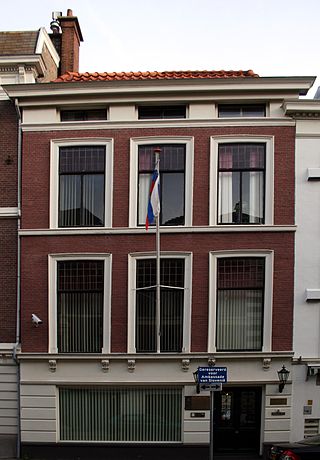
Since Slovenia declared independence in 1991, its Governments have underscored their commitment to improving cooperation with neighbouring countries and actively contributing to international efforts aimed at bringing stability to Southeast Europe. Resource limitations have nevertheless been a problem hindering the efficiency of the Slovenian diplomacy. In the 1990s, foreign relations, especially with Italy, Austria and Croatia, triggered internal political controversies. In the last eight years, however, a wide consensus has been reached among the vast majority of Slovenian political parties to jointly work in the improvement of the country's diplomatic infrastructure and to avoid politicizing the foreign relations by turning them into an issue of internal political debates.

The Slovenian Democratic Party, formerly the Social Democratic Party of Slovenia, is a conservative parliamentary party; it is also one of the largest parties in Slovenia, with approximately 30,000 reported members in 2013.
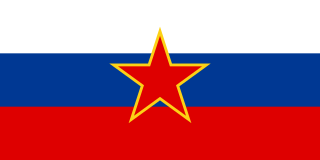
The Socialist Republic of Slovenia, commonly referred to as Socialist Slovenia or simply Slovenia, was one of the six federal republics forming Yugoslavia and the nation state of the Slovenes. It existed under various names from its creation on 29 November 1945 until 25 June 1991.
Gradac is a village in the Municipality of Metlika in the White Carniola area of southeastern Slovenia, close to the border with Croatia on the Lahinja River. It is now included in the Southeast Slovenia Statistical Region. The village is best known for well-preserved Gradac Castle.

Karl Viktor Erjavec is a Slovenian lawyer and politician who served in the government of Slovenia as Minister of Foreign Affairs from 2012 to 2018. He was the president of the Democratic Party of Pensioners of Slovenia, having held the position from 2005 to January 2020 and again from December 2020 until March 2021. He was Minister of Defense from 2004 to 2008 and 2018 to 2020 and Minister of Environment and Spatial Planning from 2008 to 2010.

Barbara Brezigar is a Slovenian lawyer and politician. She currently serves as Secretary General at the Ministry of the Interior of Slovenia.
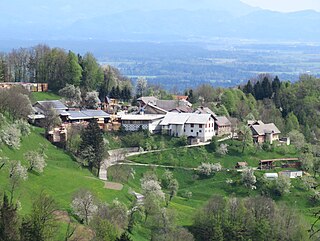
Gabrovo is a small village in the Municipality of Škofja Loka in the Upper Carniola region of Slovenia.
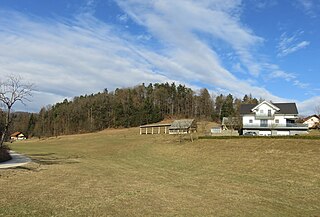
Rudnik pri Radomljah is a dispersed settlement of isolated small farms on the hills above Volčji Potok in the Municipality of Kamnik in the Upper Carniola region of Slovenia.
Kačji Potok is a settlement in the Municipality of Kočevje in southern Slovenia. The area is part of the traditional region of Lower Carniola and is now included in the Southeast Slovenia Statistical Region.

Parliamentary elections were held in Slovenia on 13 July 2014 to elect the 90 deputies of the National Assembly. The early election, less than three years after the previous one, was called following the resignation of Alenka Bratušek's government in May. Seventeen parties participated, including seven new parties, some of which formed only months before the election took place. Party of Miro Cerar (SMC), a new party led by lawyer and professor Miro Cerar, won the election with over 34% of the vote and 36 seats. Seven political parties won seats in the National Assembly. Three political parties left the Assembly, including Zoran Janković's Positive Slovenia, the winner of the 2011 election, and the Slovenian People's Party, which failed to win a seat for the first time since the first elections in 1990. A leftist United Left party entered the Assembly for the first time, winning six seats.
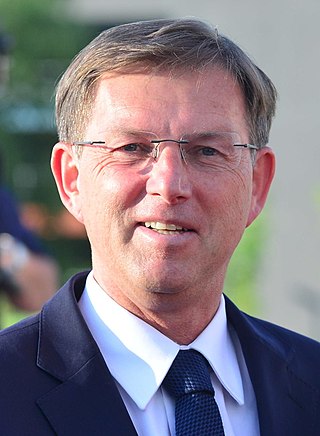
Miroslav Cerar Jr. is a Slovenian law professor and politician. He was Prime Minister of Slovenia, leading the 12th Government. He served as Deputy Prime Minister and Minister of Foreign Affairs in the 13th Government. He is a full professor at the Chair of Theory and Sociology of Law at the University of Ljubljana Faculty of Law.

The Modern Centre Party was a social-liberal political party in Slovenia led by Minister of Economical Development and Technology Zdravko Počivalšek, who succeeded former Prime Minister and former Minister of Foreign Affairs Miro Cerar as the party president. It formed in 2014 and merged with Economic Active Party in 2021, to form a party Concretely.
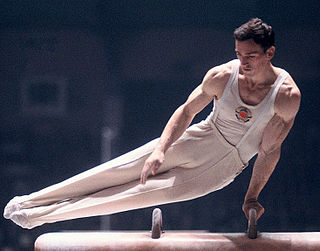
Miroslav Cerar is a Yugoslav former gymnast and lawyer of Slovene ethnicity who won the pommel horse event at the 1964 and 1968 Summer Olympics. He also won three world and nine European championships.

The 12th Government of Slovenia, led by Prime Minister Miro Cerar, was announced on 18 September 2014. It was formed following the 2014 parliamentary election won by the centre-left Party of Miro Cerar; it was the third government formed over four years. At 51 years, Cerar was the second oldest Prime Minister of Slovenia since Independence, following Andrej Bajuk at 56 years. The cabinet had on the day of inauguration the highest number of women ministers representatives, as there were seven women ministers out of sixteen ministers in total. Cerar's cabinet was the highest educated cabinet to date, with six members with a doctorate.

Mateja Vraničar Erman is a Slovenian administrator who served as the Minister of Finance in the government of Prime Minister Miro Cerar from 2016 until 2018.
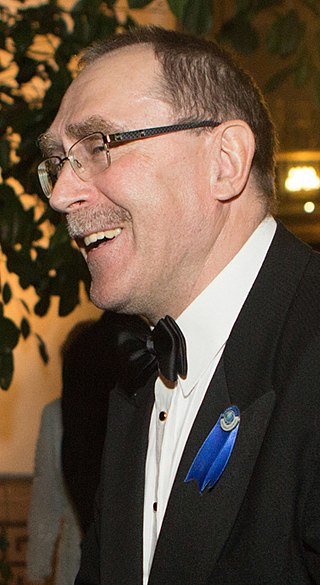
Božo Cerar is a Slovenian diplomat.
Matej Accetto is a Slovenian judge and president of the Constitutional Court of Slovenia.
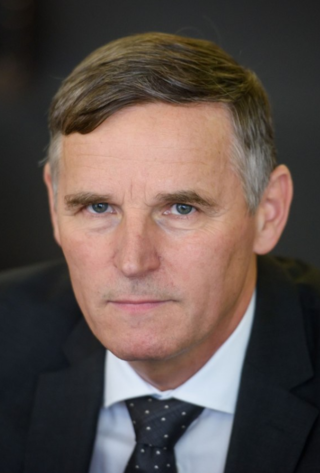
Andrej Bertoncelj is a Slovenian economist and politician. From September 2018, he served as Minister of Finance in the 13th Government of Slovenia. He resigned in January 2020.
Peter Jančič is a Slovenian publicist, journalist, editor, political analyst and author. He has served as an editor-in-chief of daily Delo (2006-2007), Spletni časopis (2017-2020) and Siol news website (2020-).
Slovenia has been a member of the European Union since 2004.















